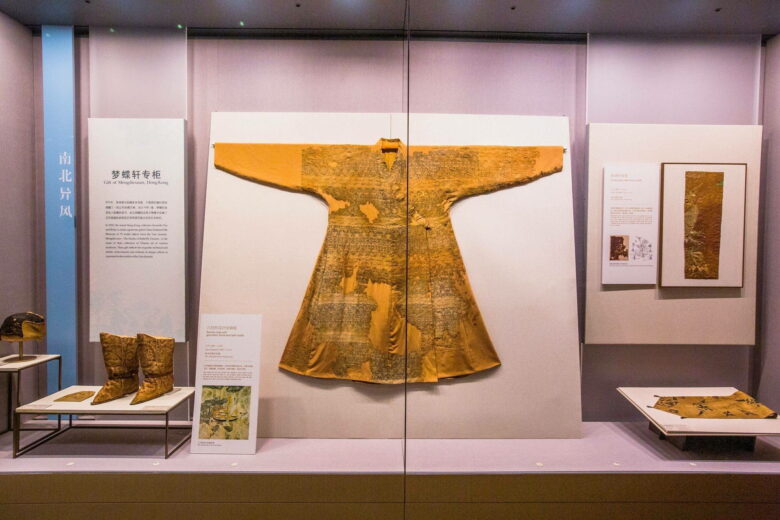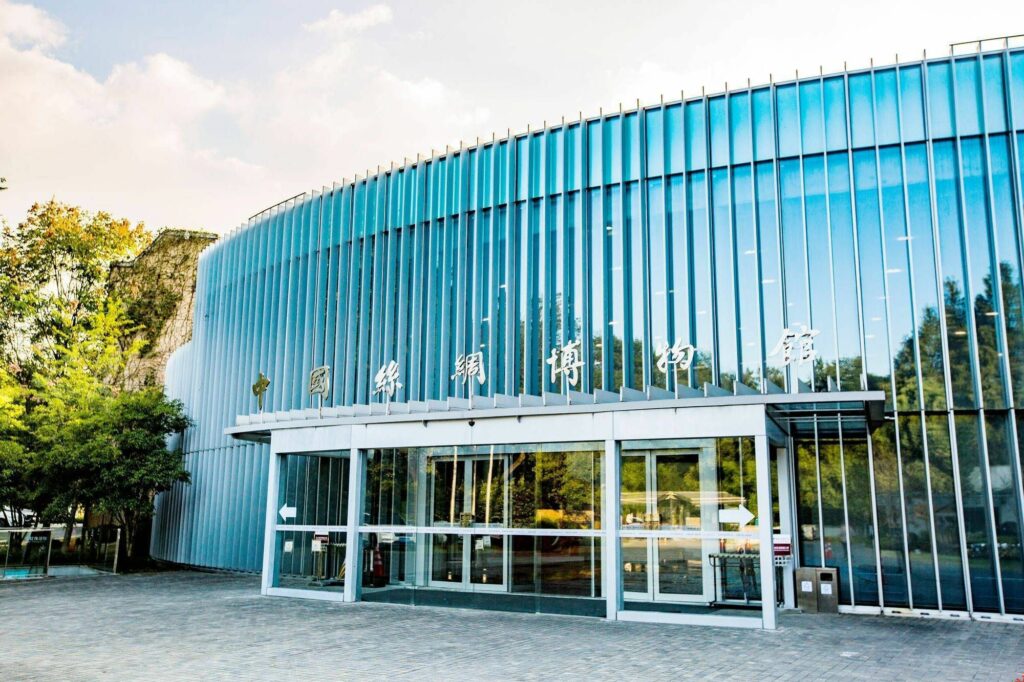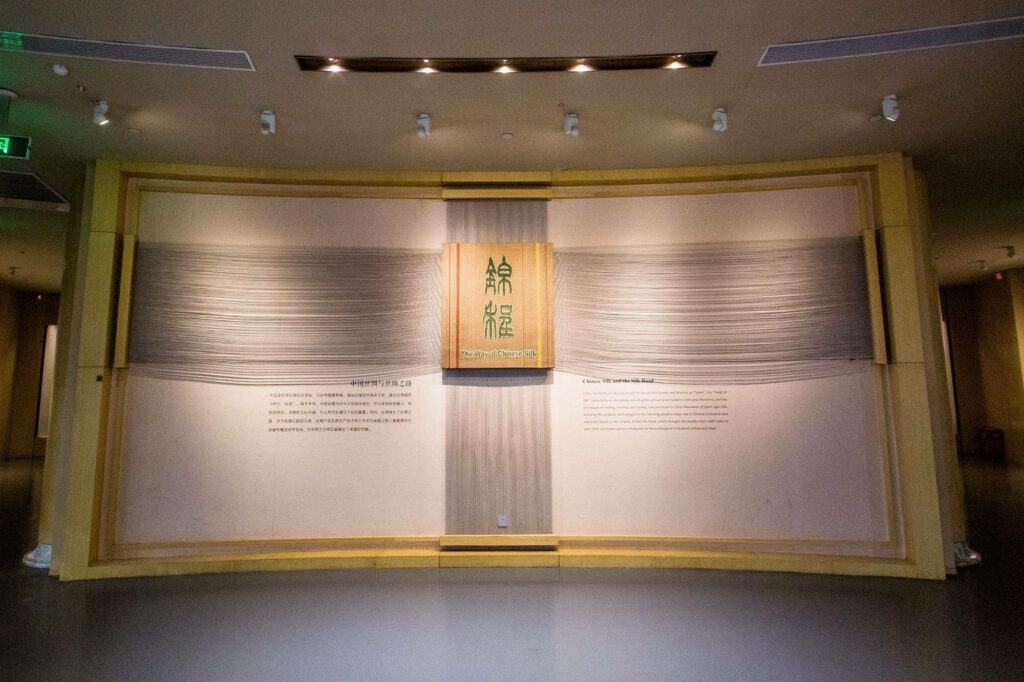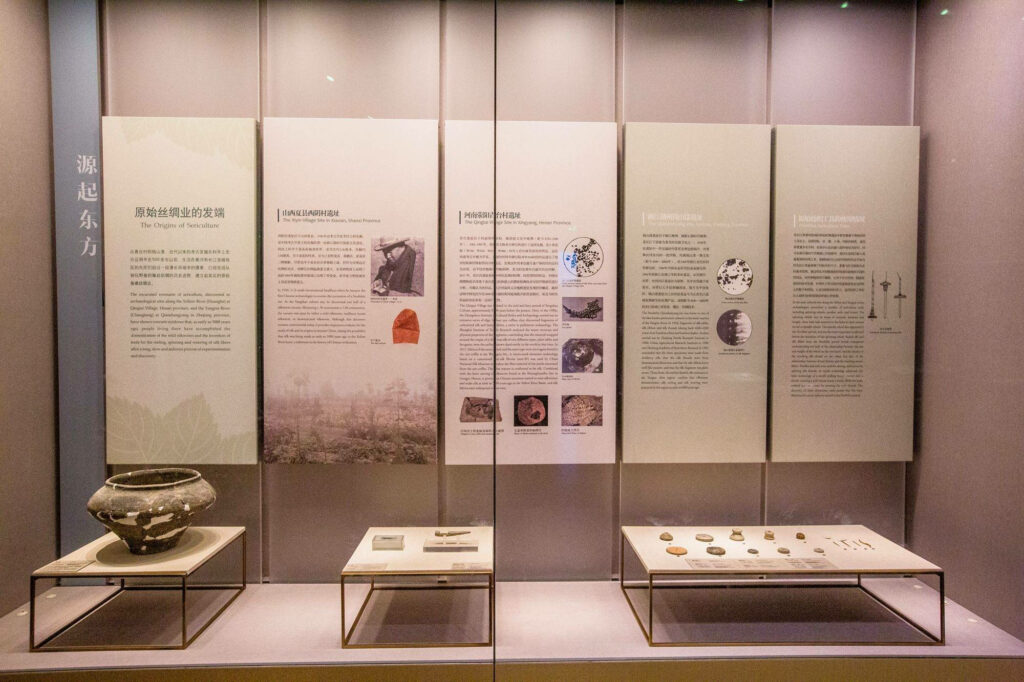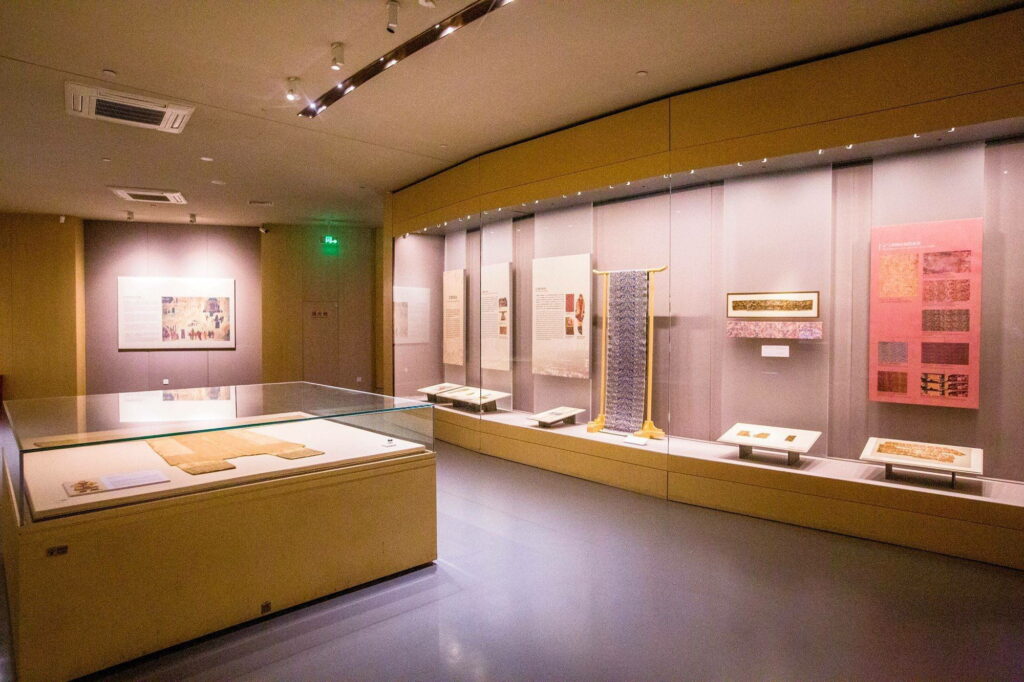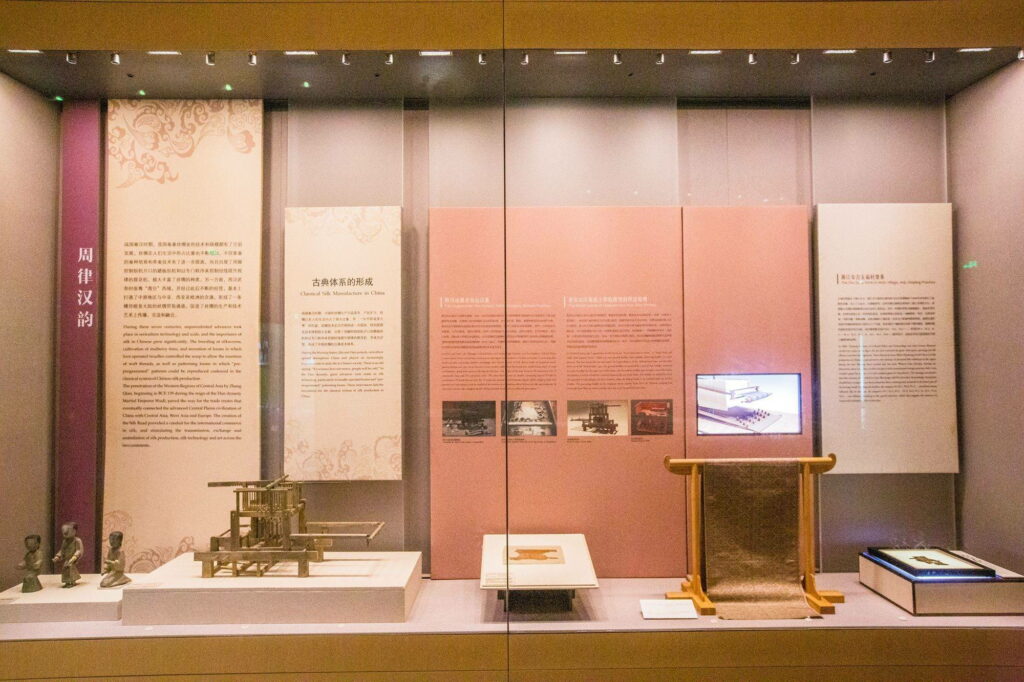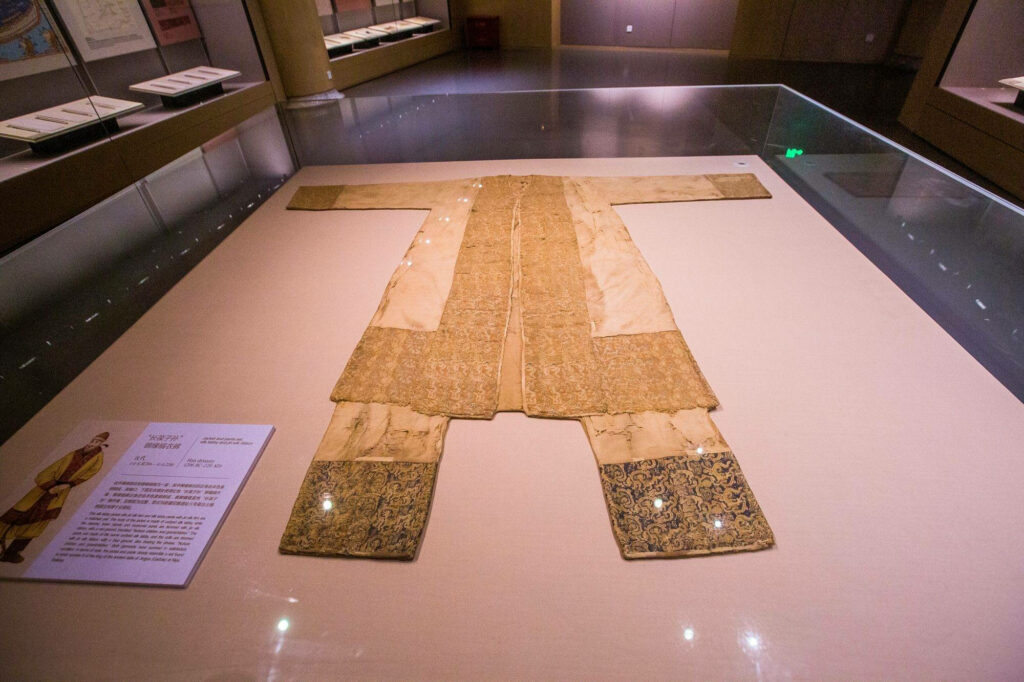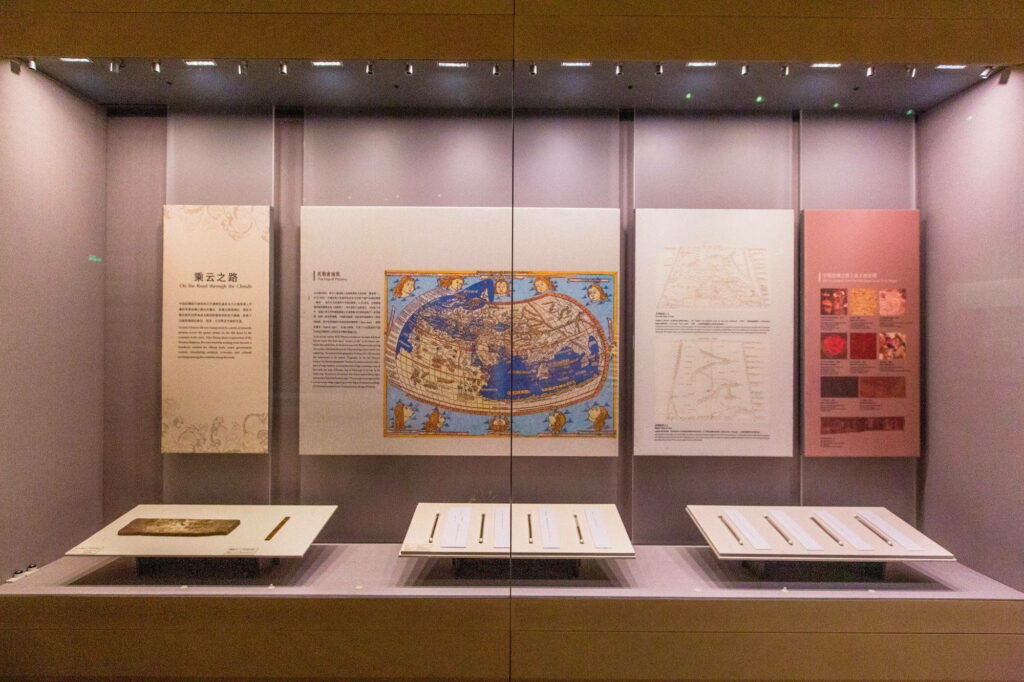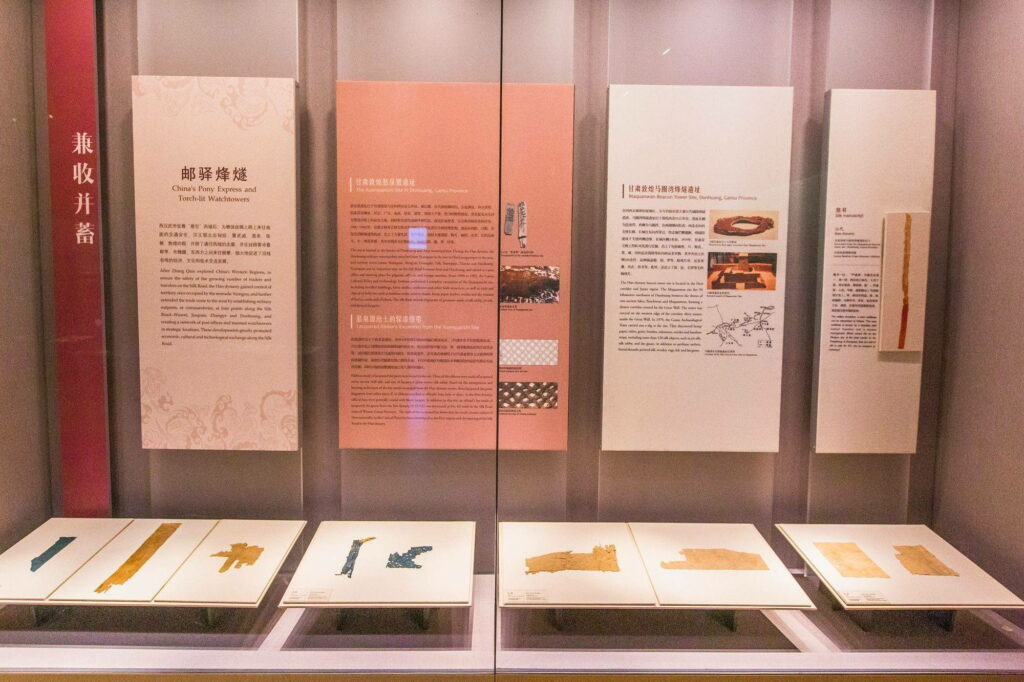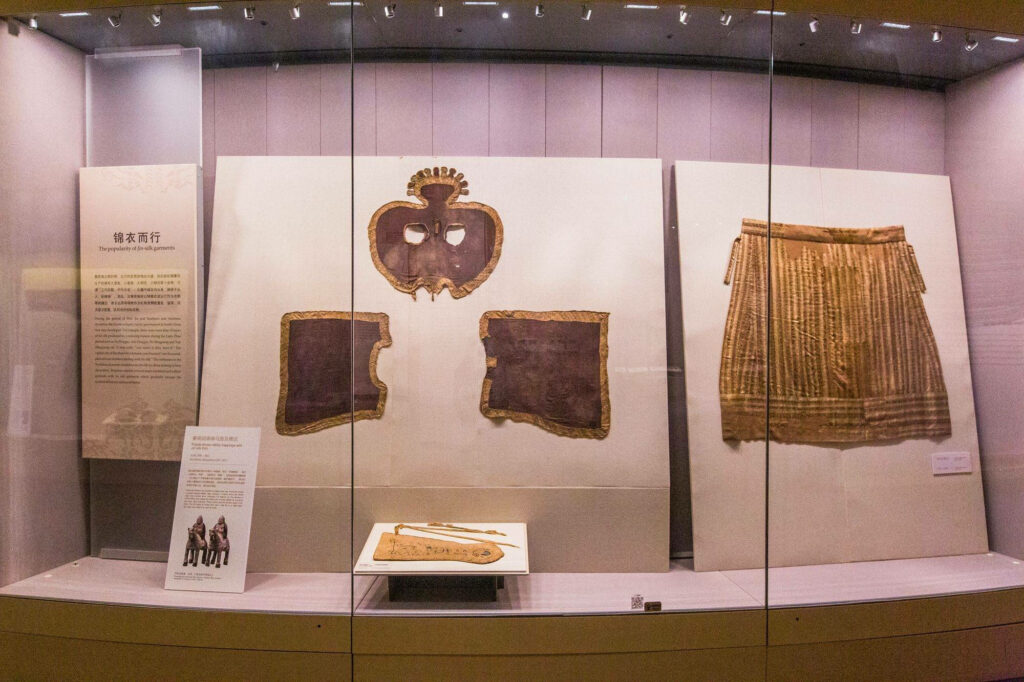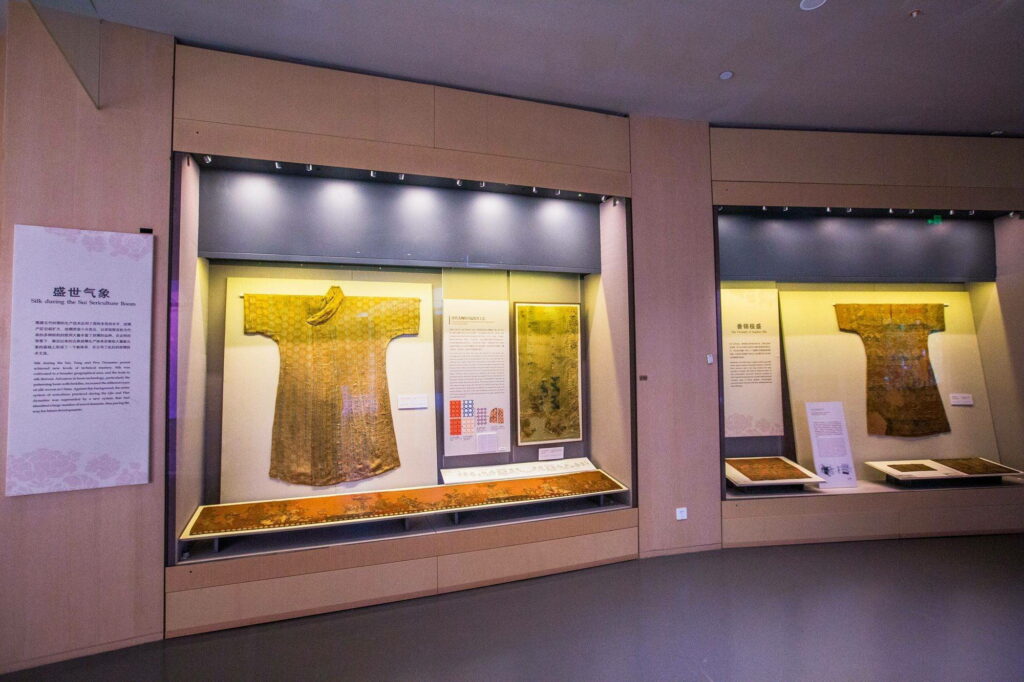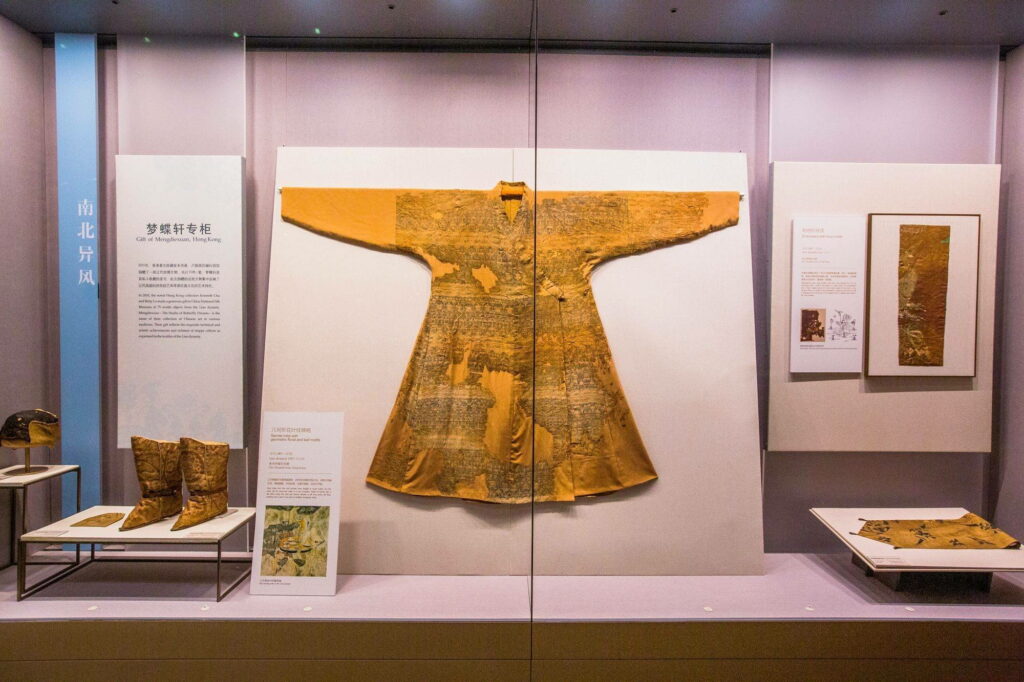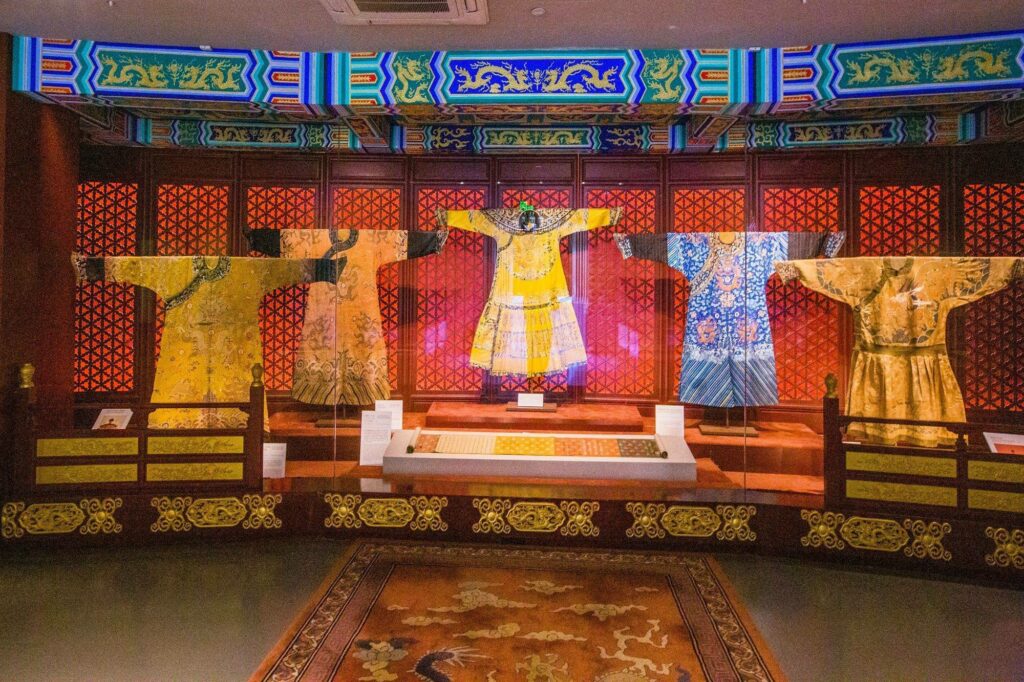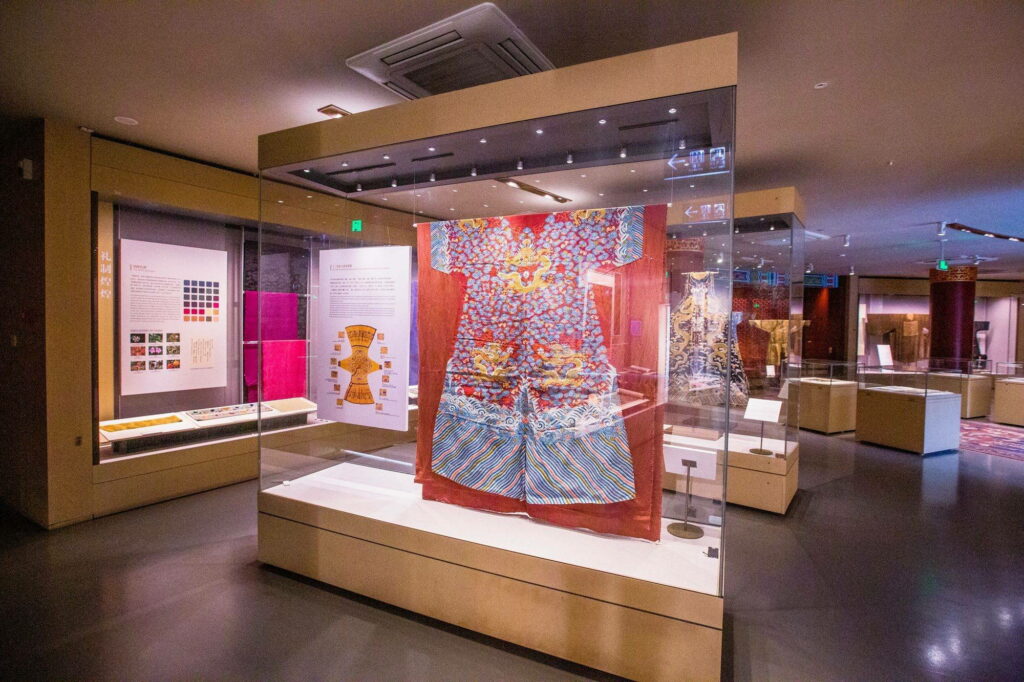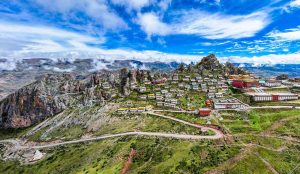Today, if you want to understand silk culture, you must go to the China National Silk Museum.
China National Silk Museum is located at the foot of Yuhuang Mountain in the West Lake Scenic Area of Hangzhou. It is the largest textile and clothing museum in China and the largest silk museum in the world. It is open to tourists; entrance is free.
The museum is divided into four exhibition halls – the Silk Road Hall, the Intangible Cultural Heritage Hall, the cultural relic restoration Exhibition Hall and the Fashion Hall. The Silk Road Hall is based on traditional silk, focusing on Silk Road; the Intangible Cultural Heritage Hall displays techniques such as sericulture, printing and dyeing, and embroidery; the Restoration Hall mainly displays the repaired ancient textiles and related cultural relics; the Fashion Hall showcases a large number of Chinese and Western apparels.
Today, Paris, New York, and Tokyo are recognized as the fashion cities in the world. For a long time in ancient times, as the birthplace of silk, China was said to be the world’s fashion capital because of advanced cultivating silkworms and silk weaving technology. The beautiful silk and silk skills also gave birth to the famous overseas Silk Road.
From various tools to a wide range of silk products, here, people can see the past and present of silk and the development and evolution of Chinese clothing.
The Jinyuan silk garment and silk trousers supposedly dating from the Han Dynasty are treasures in the collection. The exquisite silk weaving technology makes this suit look quite delicate, it can be said that it is low-key luxury.
Drawn in the Ptolemy map before the great sailing ships era, China was marked as Serica (meaning silk). Although the West knew little about China at that time, the unique silk had spread all over the world.
At the period of Wei, Jin and Southern and Northern Dynasties, Wei, Jin, Southern and Northern Dynasties, silk garment had undergone relatively large changes compared with previous eras. From the appearance, it had obvious ethnic minority styles.
Sui, Tang and Five dynasties was the most magnificent period in feudal society, silk technology was more developed, and silk products also prospered greatly. Now people can always see the luxurious costumes in Sui-Tang Dynasties from historical movies and TV play. People are presented with more authentic cultural relics in the exhibition halls, the silk garments here are not very fancy appearances compare with those on television. But people can still see the gorgeous style and rich color at that time.
The clothing of the Ming and Qing Dynasties abandoned the low-key and elegant style and was more close to a gorgeous silk clothing. Even after a hundred years, people still feel their texture and aura.
Clothes hide the unique aesthetics and historical and cultural deposits of the Chinese people. If you travel to Hangzhou and want to visit a different museum, you don’t miss this once unique “Made in China” in the world.
